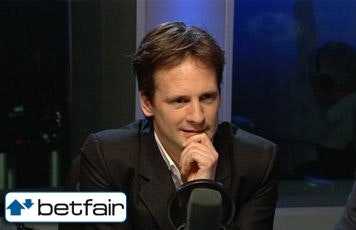Equitise recently interviewed Betfair founder Mark Davies (non-exec director at RateSetter, entrepreneur, strategist and early stage startup investor).
We have included a slice of this interview below.
Give us a 40,000-foot overview of your biggest business achievements over the past 10 years?
I’m not sure I can lay claim to any huge achievements! In terms of involvement in a project, we delivered 132x return for our seed investors at Betfair over the period from 2000 to 2006. In terms of my own investments, my biggest was a payments processor called Envoy, which delivered 70x in three years. As I put my own money into Betfair only at the second round stage (66x), it even topped that! Of course, there have been some horrors on the way as well: there always are with early stage companies! You need luck as well as a good idea. And a lot of hard work helps.
What are your top tips of advice for youngsters wanting to build and execute disruptive technology business?
I always tell people to consider what the landscape will look like if they succeed, rather than focusing on what it looks like today, because if you gain traction as a disruptive business, then incumbent players will try to block you – often through legislation. So you have to strategise for the future landscape, not the current one – or there’s a danger that you just become part of the status quo ante. I have just written a dissertation about it, in fact, using Betfair’s first five years as a case study. At 16,500 words it’s a bit long to blog, though!
What would you say are the best ways to reach that level of critical mass with a growing user base of customers?
I think it is important to know who you are trying to target. It sounds silly, but so often people don’t tailor their message to their audience, and as often a not that’s because they haven’t actually decided exactly what audience they are looking for. If you’re in a market place with buyers and sellers, one category might be more important than the other to get things up and running: you won’t have any buyers if you don’t have any product to offer them, for example. So you need to decide what your answer is to the chicken and egg question. You can’t market to a chegg – not until you are big enough to be recognised by your brand rather than your product, anyway.
Who are your mentors? And what advice would you give to a budding entrepreneur when selecting his/her mentor(s)?
I don’t have any, strangely enough. I don’t have any heroes either, which people find very odd. There are plenty of people I admire, learn from, and go to for advice, but I have never had a mentor as such.
